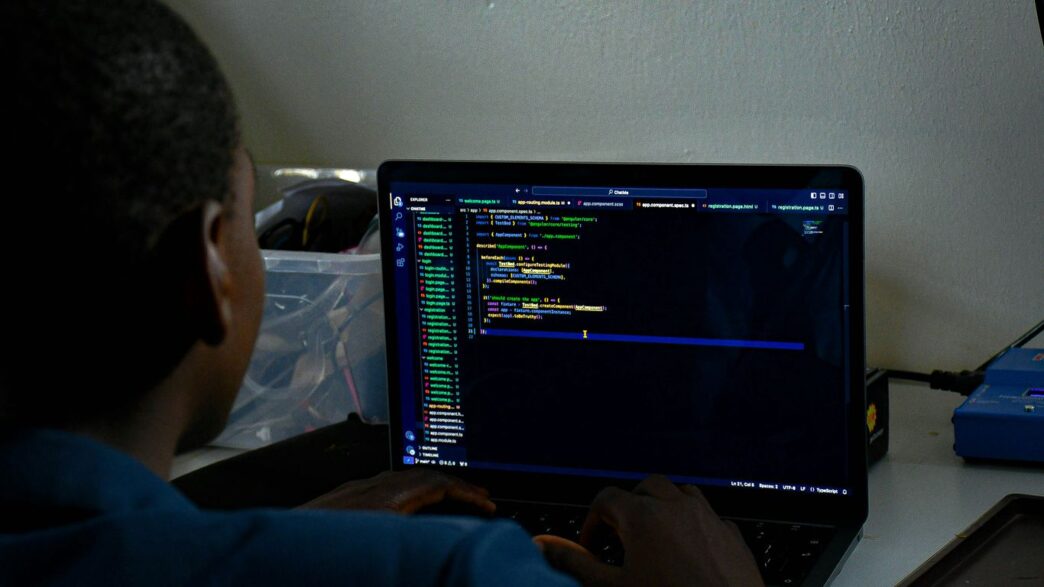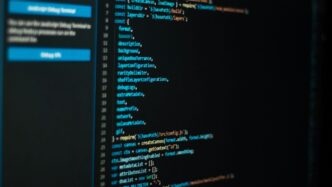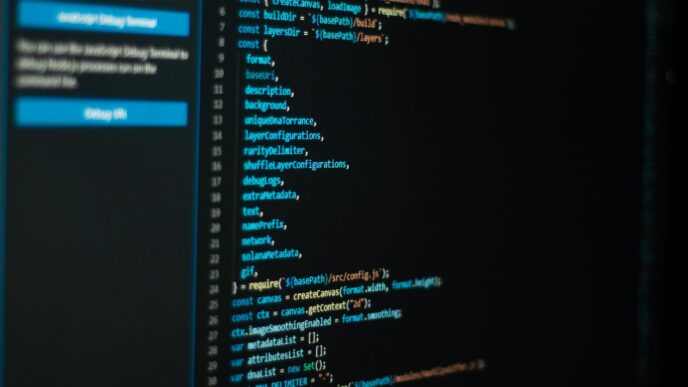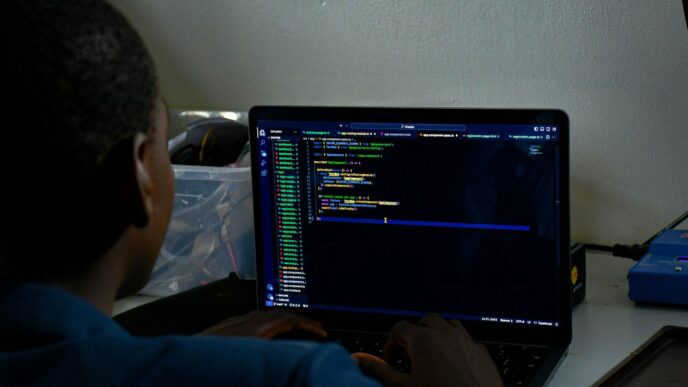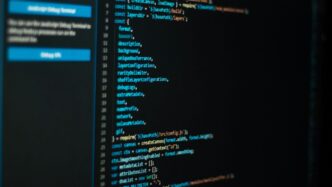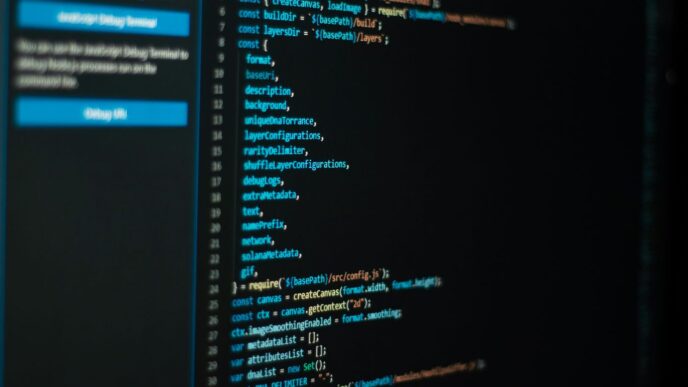Learning Python can open up a lot of doors, whether you’re just starting out or looking to advance your career. But sometimes, figuring out where to begin or how to tackle tricky concepts can be tough. That’s where a good python tutor comes in. They can really help make sense of it all, guiding you through the code and projects to help you reach your goals faster.
Key Takeaways
- A python tutor offers personalized learning, adapting to your current skill level and learning pace.
- Finding the right python tutor involves assessing your needs and checking their experience and specializations.
- Tutoring covers all levels, from beginner basics to advanced topics like data science and web development.
- One-on-one sessions provide focused attention, flexible scheduling, and practical, project-based learning.
- Investing in a python tutor is an affordable way to gain valuable skills and achieve learning outcomes.
Understanding the Value of a Python Tutor
Personalized Learning Journeys
Learning Python can feel like trying to assemble IKEA furniture without instructions sometimes. Everyone’s path is different, and what clicks for one person might just be confusing for another. That’s where a tutor really shines. They don’t just follow a script; they watch how you learn and adjust. If you’re stuck on loops, they’ll spend more time there. If you pick up functions quickly, they’ll move on. It’s like having a personal guide who knows the terrain and can point out the best paths for you, rather than just handing you a generic map. This tailored approach means you’re not wasting time on concepts you already grasp or getting lost in areas that are too advanced for your current stage. It’s all about making your learning experience as efficient and effective as possible.
Bridging Knowledge Gaps
Sometimes, you might have a solid grasp of one programming concept but struggle to connect it to the next. Maybe you understand basic syntax but get lost when it comes to object-oriented programming, or you’re fine with data structures but can’t quite figure out how to apply them in a real project. A tutor can spot these specific weak points, these little gaps in your knowledge, and provide targeted explanations and exercises to fill them. They can show you how different pieces of Python fit together, making the whole language feel less like a collection of random rules and more like a cohesive system. Think of it like a mechanic diagnosing a car – they don’t just guess; they pinpoint the exact issue and fix it. This targeted help is incredibly useful, especially when you’re trying to build complex applications or work with libraries like Pandas for data analysis. You can even find tutors who specialize in specific areas, like Python for data science.
Accelerated Skill Development
Let’s be honest, figuring out programming on your own can take a long time. You might spend hours debugging a simple error or trying to understand a concept from a textbook that just isn’t clicking. A tutor can significantly speed up this process. They’ve been there, they know the common pitfalls, and they can offer shortcuts and best practices that aren’t always obvious. They can explain complex ideas in simpler terms, provide practical examples that make sense to you, and guide you through building actual projects. This hands-on approach, combined with expert feedback, helps you learn faster and build confidence. Instead of just passively watching tutorials, you’re actively coding and getting immediate help when you hit a wall, which really makes a difference in how quickly you pick things up.
Finding the Right Python Tutor For You

So, you’ve decided to learn Python, which is a pretty smart move these days. But with so many options out there, how do you actually find a tutor who fits what you need? It’s not just about picking the first name you see. You really need to think about a few things first.
Assessing Your Current Skill Level
Be honest with yourself here. Are you starting from scratch, like, you’ve never even seen code before? Or maybe you’ve dabbled a bit, perhaps you know some basic commands but get lost easily? Knowing where you stand helps a tutor figure out the best starting point. It’s like telling a doctor if you have a headache or a broken leg – they need that info to help properly.
- Complete Beginner: No prior coding experience. You’ll need someone patient who can explain the absolute basics.
- Some Exposure: You’ve written a few lines of code, maybe followed a tutorial, but lack confidence or understanding of core concepts.
- Intermediate: You can write simple scripts but want to tackle more complex problems or specific libraries.
- Advanced: You’re comfortable with Python but want to specialize or work on challenging projects.
Defining Your Learning Objectives
What do you actually want to do with Python? This is super important. Are you trying to get into data science? Build websites? Automate boring tasks at work? Or maybe you just want to understand programming better for a college course.
- Career Change: Aiming for a job in tech, data analysis, or web development.
- Academic Support: Needing help with coursework, assignments, or understanding concepts for a class.
- Personal Projects: Wanting to build something specific, like a game or a personal website.
- Skill Enhancement: Improving existing programming skills or learning a new language for business.
Evaluating Tutor Experience and Specializations
Once you know your level and goals, you can look at tutors. Some tutors are great all-rounders, while others really shine in specific areas. If you want to learn Python for machine learning, finding a tutor who actually works in machine learning is a big plus. Look at their background, what kind of projects they’ve worked on, and if they have experience teaching people at your level.
- Years of Experience: How long have they been coding and teaching?
- Subject Matter: Do they specialize in areas you’re interested in (e.g., data science, web dev)?
- Teaching Style: Do they seem like they can explain things clearly? Check reviews or ask for a trial session if possible.
- Credentials: While not always necessary, a relevant degree or professional certification can be a good sign.
Tailored Tutoring for Every Python Learner
Python is a versatile language, and how you learn it should match where you are in your journey. Whether you’re just starting out or looking to master advanced concepts, a good tutor can shape the learning experience to fit you perfectly.
Beginner-Friendly Python Guidance
If you’re new to coding, Python is a great starting point. Tutors can break down the basics, like variables, data types, and simple loops, in ways that make sense. They’ll focus on building a solid foundation, often using analogies and real-world examples to make abstract ideas concrete. Expect to work through lots of small, manageable code snippets. The goal is to get you comfortable writing your first programs without feeling overwhelmed. Many beginners find that working through practical problems, like simple calculations or text manipulation, helps solidify their understanding. It’s about building confidence step-by-step.
Intermediate Python Concepts
Once you’ve got the hang of the basics, you might want to explore more complex topics. This could include object-oriented programming (OOP), working with files, or using common libraries. An intermediate tutor can help you understand how these pieces fit together. They might introduce you to concepts like classes, inheritance, and error handling. You’ll likely spend time on projects that require you to combine several concepts, such as building a small application or analyzing a dataset. This stage is about moving from writing simple scripts to building more structured and functional programs. Learning how to debug your code effectively is also a big part of this phase.
Advanced Python Topics and Projects
For those looking to push their Python skills further, advanced tutoring can be incredibly beneficial. This might involve diving into specific libraries for data science, web development, or machine learning. Tutors can guide you through complex algorithms, design patterns, or performance optimization. You’ll likely work on more substantial projects that mimic real-world applications. This could be anything from building a web API to developing a machine learning model. The focus here is on applying your knowledge to solve challenging problems and developing a deeper appreciation for Python’s capabilities. Tutors can also help you prepare for specific career paths or certifications. For instance, if you’re interested in data science, a tutor can guide you through libraries like Pandas and NumPy, and even help you understand the basics of machine learning.
Here’s a quick look at how tutoring can adapt:
| Skill Level | Focus Areas |
|---|---|
| Beginner | Basic syntax, variables, loops, simple functions |
| Intermediate | OOP, file handling, modules, error handling |
| Advanced | Libraries, algorithms, design patterns, projects |
Remember, the best tutoring is adaptive. A good tutor will adjust their pace and methods based on your progress and feedback, making sure you’re always learning effectively.
Specialized Python Tutoring Areas
Python is a super flexible language, and people use it for all sorts of things. That means you might be looking to learn Python for a specific reason, and a tutor who knows that area can make a big difference. It’s not just about learning the basics; it’s about applying them to what you want to do.
Python for Data Science and Machine Learning
This is a huge field right now. If you want to work with data, analyze trends, or build smart systems, Python is your go-to. Tutors in this area can show you how to use libraries like Pandas for data manipulation, NumPy for numerical operations, and Scikit-learn for machine learning algorithms. They can guide you through:
- Data cleaning and preparation
- Building predictive models
- Visualizing data with Matplotlib and Seaborn
- Understanding core machine learning concepts
Getting hands-on experience with real datasets is key here.
Web Development with Python
Python is also a strong player in web development, thanks to frameworks like Django and Flask. Learning Python for web development means you’ll be building the back-end of websites and web applications. A tutor can help you understand:
- Setting up web frameworks
- Creating databases and managing data
- Handling user requests and responses
- Deploying your web applications
It’s about turning your ideas into functional websites.
Automation and Scripting with Python
Many people learn Python to automate repetitive tasks, making their work life much easier. Whether it’s managing files, sending emails, or scraping data from websites, Python scripts can save you a ton of time. A tutor specializing in automation can teach you:
- Writing scripts to manage files and folders
- Using libraries for email and web scraping
- Scheduling tasks to run automatically
- Creating simple command-line tools
It’s all about making computers do the boring work for you.
The Benefits of One-on-One Python Instruction
When you’re learning something as involved as Python, having someone focus just on you makes a huge difference. It’s not like a big lecture hall where you might feel lost in the crowd. With one-on-one tutoring, you’re the main event.
Maximum Focus and Individual Attention
This is probably the biggest plus. Your tutor’s attention is 100% on you. If you’re stuck on a concept, they can spend extra time explaining it until it clicks. They can see exactly where you’re going wrong in your code and correct it right away. This kind of personalized feedback is hard to get in a group setting. It means you’re not waiting for others to catch up, and you’re not holding anyone else back. Your learning pace is the only pace that matters.
Flexible Scheduling for Busy Learners
Life gets busy, right? Between work, school, or other commitments, finding time to learn can be tough. One-on-one tutoring often comes with flexible scheduling. You can usually arrange sessions for early mornings, late evenings, or weekends – whenever works best for you. This means you don’t have to rearrange your entire life just to fit in a Python lesson. You learn when you’re most alert and available.
Practical Examples and Project-Based Learning
Good tutors don’t just talk about Python; they show you how it works. Expect lots of live coding examples and hands-on projects. This approach helps solidify what you’re learning. Instead of just memorizing syntax, you’re actually building things. This practical experience is key to truly understanding Python and how to apply it to real-world problems. You might even get assignments designed specifically around what you covered in a session, helping you practice and remember.
Making the Most of Your Python Tutoring Sessions
So you’ve booked your Python tutor – that’s awesome! But how do you actually get the most out of those sessions? It’s not just about showing up. Think of it like going to the gym; you get out what you put in. Your tutor is there to guide you, but you’re the one doing the work.
Active Participation and Asking Questions
Seriously, don’t be shy. If something doesn’t make sense, ask. Your tutor is there to explain things in different ways until it clicks. It’s way better to ask a ‘silly’ question now than to be stuck on it later. Try to engage with what they’re showing you. Maybe type along with them, or try to predict what the code will do next. Your active involvement is key to making the learning stick.
Completing Assigned Practice and Projects
Most tutors will give you little bits of homework or suggest practice exercises. Do them! This is where you really test your own understanding. It’s like practicing scales on a guitar; it might seem tedious, but it builds the muscle memory you need. Projects are even better because they let you put everything together. Don’t just copy-paste; try to understand why each line of code is there.
Seeking Feedback for Continuous Improvement
After you’ve done some practice or a small project, ask your tutor to look at it. They can spot mistakes you might miss and suggest better ways to do things. This feedback loop is super important. It helps you see where you’re doing well and where you need to focus more. Think about asking specific questions like, ‘Is there a more efficient way to write this loop?’ or ‘How could I make this code more readable?’
Affordable and Accessible Python Tutoring
Learning Python doesn’t have to break the bank. We get it; education costs can add up, and finding quality instruction that fits your budget is key. That’s why we focus on making expert Python guidance available to everyone, no matter your financial situation. High-quality learning should be within everyone’s reach.
High-Quality Instruction Within Reach
Think of it like this: you’re not just paying for lessons; you’re investing in a skill that can open up a lot of doors. Our approach is designed to give you a lot of bang for your buck. We offer personalized, one-on-one sessions where the focus is entirely on you. This means you get direct attention, and the learning plan is shaped around your specific needs and pace. It’s a more efficient way to learn compared to large, impersonal classes. We believe that getting good instruction shouldn’t be a luxury.
Investing in Your Future with Python Skills
Learning Python is a smart move for your career. Whether you’re looking to switch fields, get a promotion, or just add a powerful tool to your skillset, Python is incredibly versatile. It’s used everywhere, from web development to data science and automation. Getting a tutor can really speed up your progress, helping you avoid common pitfalls and build a solid foundation. It’s about making a smart investment in yourself and your future earning potential. Think of the time saved and the mistakes avoided by having an experienced guide.
Guaranteed Learning Outcomes
We’re confident in our ability to help you learn Python. Our tutors are experienced professionals who know how to break down complex topics into understandable parts. They’ll work with you to create a clear learning path, starting from where you are and moving towards your goals. You’ll get practical examples and project-based learning to really solidify your knowledge. We aim to make sure you not only understand Python but can also apply it effectively. If you’re looking for advice on starting a business, you might find resources similar to those offered by KPMG helpful for understanding financial aspects startup advice.
Here’s what you can expect:
- Personalized Roadmaps: A learning plan created just for you.
- Practical Application: Lots of coding examples and real projects.
- Flexible Scheduling: Learn when it works best for your life.
- Dedicated Support: Get help even between your scheduled sessions.
Ready to Start Your Python Journey?
So, whether you’re just starting out with code or looking to level up your skills for a specific project, finding the right Python tutor can make a huge difference. Remember, personalized, one-on-one sessions mean you get exactly the help you need, when you need it. With flexible scheduling and practical, project-based learning, you can really get a handle on Python. Don’t let confusion hold you back – take the step to find a tutor who fits your learning style and goals. You’ve got this!
Frequently Asked Questions
What exactly does a Python tutor do for me?
A Python tutor helps you understand coding rules, answers your questions, checks your code, and helps you create real projects that match what you want to learn.
Who can learn with a Python tutor?
Anyone can learn with a Python tutor! Whether you’re just starting out or already know some coding, a tutor can give you the special help you need for things like programming basics, working with data, or building cool projects.
How do online Python lessons work?
Lessons usually happen through video calls where you can share your screen. Your tutor will teach you personally, show you how to code live, and give you tips right away so you understand everything.
Can I learn about data science or machine learning with a tutor?
Yes, definitely! Tutors are experts in teaching Python for many areas, including data science, machine learning, making websites, and automating tasks. They’ll make the lessons fit what you want to learn.
How do I set up a time to meet with a Python tutor?
It’s easy! You can book a time on our website that works best for you. We have flexible times, and once you book, you’ll get an email with all the details for your session.
What if I have questions after my lesson?
Many tutors offer extra help through email or messages between your scheduled lessons. We want to help you keep learning and succeed even after your official session ends.


